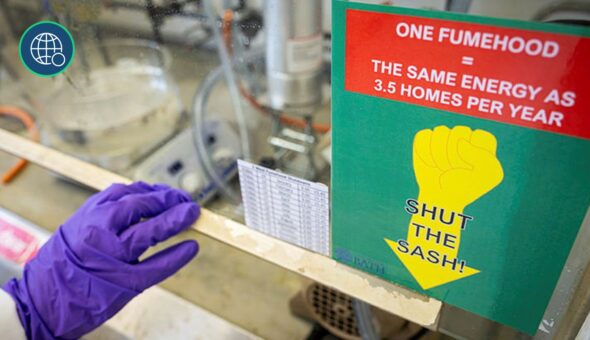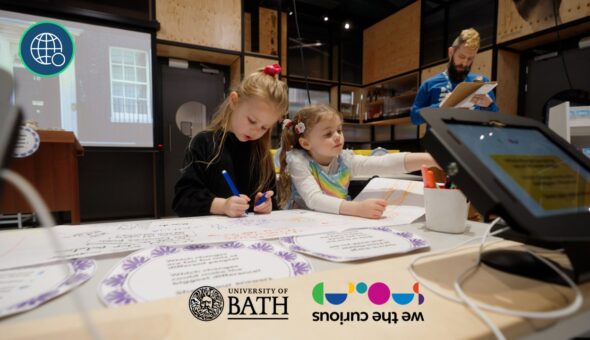In February of 2016, the United Nations decided to proclaim the 11th February of each year the International Women and Girls in Science Day.
As a University we are committed to ensuring that gender should not be a barrier to participating and contributing to the world of scientific research. And as per the 1st principle of the Athena Swan Charter, we also acknowledge that 'academia cannot reach its full potential unless it can benefit from the talents of all.’
We continue to work hard in many fronts and I was comforted to see that at this year's Vice-Chancellor's Research Day, of 11 outstanding early career researchers invited to present their work, 8 were women. We also heard, just last year the announcement that the number of female Professors at our University grew from 8% in 2009 to 20% in 2018. But of course that leaves a long way to go to achieve parity. This year's request from the UN is that we pledge to end gender imbalance in Science. How can we contribute to the breakdown of gender stereotypes? Collectively and individually we can take steps to contribute towards this goal.
The Network of Women in Physics and the Bath Student Chapter of the Optical Society are together hosting the Week of Women in Science from 10th - 14th Feb 2020 to celebrate the International Day of Women and Girls in Science. There will be lunch time talks from 5 inspirational women in physics, a pub lecture and quiz, a panel discussion and oportunities to network.
In all of these days, it is important to celebrate but also to hear from the right people. For that reason, I have invited Professor Marcelle McManus to contribute to this blog. We were proud to see her named the Most Inspirational Woman in STEM in the West just last May.
Over to Guest blogger Professor Marcelle McManus, Department of Mechanical Engineering
On the 11th February we celebrate women and girls in science day. When I mention this, I get mixed reactions. Some believe we should, and can, forget gender, race etc., and only see things from the perspective of the science and engineering produced. I wish it were so easy. The women I see around me in Science and Engineering often face discrimination. This can have fundamental issues on lives and careers. Aspects of this have been highlighted in the recent report authored by members of the Royal Society of Chemistry. Concern over the “leaky pipeline” (a metaphor to describe how the number of women in senior positions does not reflect the number going in at junior level) led them to explore gender influences in science publications. Academic publications are critical to progression in academia. We are encouraged to publish our work - most importantly to share the knowledge we have gained to enable it to be used and developed. But our publications are important for other reasons too, they affect access to research funding, our standing with internal and external colleagues and our career progression. Where we publish and what we publish is critical. It is therefore shocking to read the findings of this publication which highlights how much more difficult is for women than men. Key issues they found include: 1) Publications are less successful if they have a female corresponding author, 2) Females are less likely to submit papers to high impact factor journals, 3) Articles authored by female authors are more likely to be rejected without review, 4) Female reviewers are more likely to review papers that have gone through multiple reviews, 5) Published papers with female corresponding authors lead to fewer citations. The authors stated that although there was no one dominant factor disadvantaging female researchers, there were a series of small but significant results, which they liken to “death by a thousand cuts”. Sadly these thousand cuts are not limited to publishing.
So, should we celebrate women and girls in science and engineering? Absolutely! We need to change the system and make it better for everyone involved. Personally, I think we need to celebrate because we face so many global challenges that can only be tackled if we bring together the minds from all walks of life regardless of race, gender or background. If we don’t celebrate everyone’s contribution and make the world of science and engineering safe for all, we run the risk of coming up with solutions which are similar to those that led us to our current situation.
Take climate change for example. When we work together there is much we can do to overcome some of the associated challenges. This can be done on a local and on a global level. Recently I was lucky enough to be asked to be the academic lead for an event held between the University and Bath and North East Somerset Council. We explored how we could use our joint knowledge, drive and experience to tackle low carbon heating in a world heritage city with numerous listed buildings. From that we hope to build a Heating Task Force which will enable Bath to lead in this area; to become known for its approach to climate change solutions within a historic environment. The workshop was diverse in gender and background, leading to some innovative thinking around the challenges and possible solutions.
There are things we can all do. In our Supergen Bioenergy Hub the Co-Investigators were selected by blind review. This means all identification of the applicants was stripped from the process; only the proposed research was explored. We have a gender balanced Core Management Group as a result. We hold flexible funds for short research projects and fellowships, and we operate the same process for this.
Marcelle


